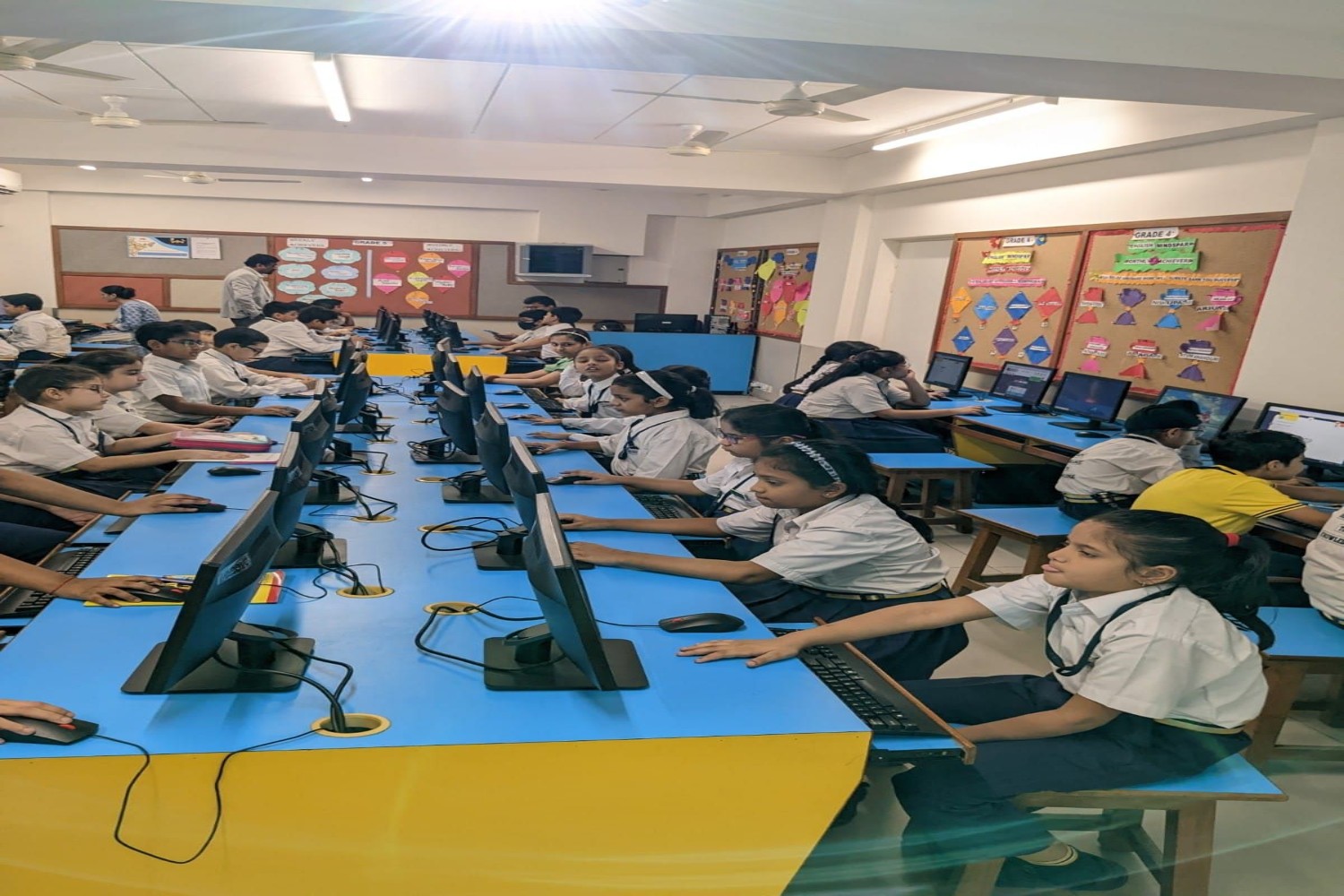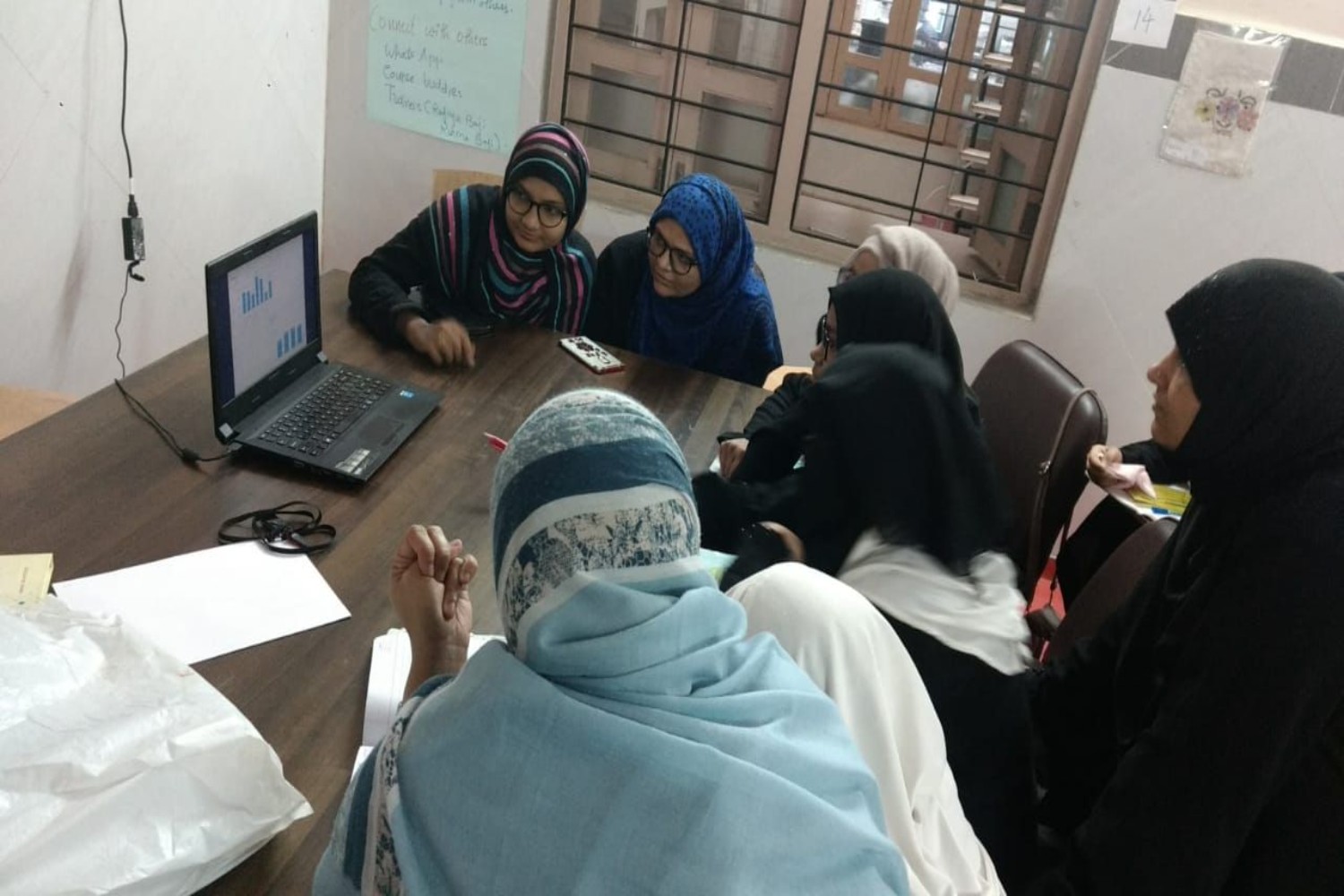Toward inclusive assessment
Deepti Gubbi and Akanksha Rajgulati, in their essay highlight what is perhaps the most important issue related to assessment, inclusion; they do so by drawing upon their work with children with intellectual and developmental disabilities.

Assessment is a key part of any efficient educational system. When designed effectively, assessments help provide feedback to students on their learning progress. They can also serve as evidence for external stakeholders to evaluate the efficacy of a particular course of study and about what students are gaining (Azim Premji Foundation, 2015).
Assessment can be seen as (a comprehensive process involving self-assessment) comprising of all those activities undertaken by teachers and by their students assessing themselves, which provides information to be used as feedback to modify the teaching and learning activities in which they are engaged (Black and William, 1998)
The paradigm shift from ‘assessment of learning’ to ‘assessment for learning’
Assessment of learning is summative in nature because it is intended to measure learning outcomes and report those outcomes to students, parents and administrators and other stakeholders. It compares students’ achievement with standards. It occurs at the end of the learning unit, and it is teacher centered. Assessment of learning indicates the level of learning of a student, but after the process of learning is over. This does not allow for any scope of immediate feedback to teachers or any chance of remediation. (Olutola, et al., 2016)
Assessment for learning is defined as an ongoing process of gathering and interpreting evidence about student learning. The purpose is to determine where students are in their learning, where they need to go, and how best to get there. It occurs when teachers use inferences about students’ progress to inform their teaching. Assessment for learning is, therefore, formative in nature (ibid, 2016).
The shift from ‘assessment of learning’ to ‘assessment for learning’ has been a huge one. However, the landscape of disability has not seen much movement, due to the complexity of the issues involved.
Let us introduce you to I. B. She is 15 years old. She is a happy and cheerful child, who has a profound grade of intellectual disability. This means an IQ of less than 25 (‘normal’ IQ being 90-100). She has not yet spoken a word in all her 15 years. She cannot eat without assistance. She is carried by her mother to school. She needs full support in using the washroom and is unable to express even her most basic needs.
But she loves people and her eyes shine on seeing familiar faces. Each child with intellectual and developmental disability (IDD) is unique and has specific needs. No standardized assessments can do justice to the individual requirements of each of them. IDD impacts one’s cognitive functioning, such as learning, problem solving and judgment. It also affects the person’s adaptive functioning related to activities of daily life, such as communication and independent living.
The biopsychosocial model suggests that to understand a person’s medical condition, it is not enough to simply consider the biological factors. We need to take into account the psychological and social factors as well. Therefore, it is imperative that we assess each of these domains to attempt to measure any significant impact with our interventions.
For children with IDD, the challenges with assessments are multifold. Children with IDD may not follow the neurotypical trajectory of milestone development. Therefore, it is important to assess each child’s learning levels and then ascertain appropriate learning pathways by selecting goals for each. Moreover, IDD being a spectrum disorder, each child operates at a different level. This varies according to the severity of the condition. Individualized Educational Plans (IEP’s) need to be formulated for each child.
Assessing for transformative learning: the journey of Jai Vakeel Foundation
Jai Vakeel Foundation (JVF) has been working with children and adults with IDD since 1944. In this journey of more than 78 years, we have closely worked and collaborated with many other organizations and specialists to gain sector-specific understanding of the challenges faced by various stakeholders. It has provided us with a unique opportunity to step back and look at the larger picture, wearing the hat of the ecosystem. From this vantage point, we have observed the need for collaborative efforts and interconnections among organizations, educators, parents and other stakeholders involved in supporting individuals with IDD.
Recognizing the importance of a collective approach, in 2019, JVF entered into a partnership with the Department of Social Justice and Special Assistance, Government of Maharashtra, and the Commissionerate of PwD. The goal of this collaboration has been to make JVF’s curriculum available to all the IDD schools across the state of Maharashtra. Through this scaling initiative called ‘Disha Abhiyan,’ we have access to over 436 schools for children with intellectual disabilities in Maharashtra. This has provided us with rich, on-ground experience of the realities in both urban and rural areas. One important gap that we have identified across institutions is the lack of a uniform method of assessment of students.
The requirement for detailed assessment in our sector has been felt for some time now. Checklists such as Functional Assessment Checklist for Programming (FACP), Behavioral Assessment Scale for Indian Children with Mental Retardation (BASIC–MR) and a few others have been available. However, upon deep assessment of these checklists, discussions with teachers, and seeing the on-ground reality at JVF, we realized that although these assessment checklists were exhaustive in what they were assessing, the user experience was marred by either jargonistic terminology, complicated scoring parameters or cumbersome documentation.
It is at this juncture that we decided to develop an assessment checklist for IEP (Individualized Assessment Plan). Instead of reinventing the wheel, we collated what was already existent. We researched extensively and worked on certain key areas for making the checklist comprehensive. We tried to ensure that all the domains requiring intervention for holistic development were included. We ascertained that the necessary modifications were made, so as to ensure that the checklist was applicable to all students across the spectrum. We also kept the scoring simple and easy to gauge.

Our Assessment Checklist for IEP is a set of 200 (3-14 years) and 250 (14-18 years) skillbased items across developmental domains. These are to be used for assessment with the primary objectives of ascertaining the current level of functioning of the child and to help in designing effective IEPs.
The checklist aims at assessing the child across domains. The goal is to understand their strengths and the areas in which support is needed. This can equip the teacher with a comprehensive understanding of the learner’s abilities. They can then plan to ensure the best learning outcomes.
The domains of assessment include ‘Activities of Daily Living’ (ADL), communication, educational activities, recreational activities, social behavior, and life skills (14-18 years). The Assessment Checklist for IEP is certified by NIEPID (National Institute for the Empowerment of Persons with Intellectual Disabilities). It has been found to be appropriate and beneficial for all children with IDD in the age group of 3-18 years of age.
Toward inclusive assessment
In the realm of education, assessment serves as a vital component of effective instructional practices. While traditionally focused on evaluating learning outcomes, a paradigm shift towards inclusive assessment has emerged.
Inclusive assessment aims to go beyond mere evaluation. It fosters an understanding of students’ progress in the learning objectives. The following aspects contribute towards developing an inclusive assessment.
Promotes individualized intervention: Our assessment checklist for IEP serves as a powerful resource aligned with the principles of inclusive assessment. This comprehensive tool facilitates personalized and equitable assessments, by considering the individual needs of students with intellectual disabilities.
Follows a collaborative approach: Goepel (2009) points out that the IEP process is most beneficial when there is a mutual exchange of information between parents, children and educators. Our assessment checklist for IEP fosters collaborations among teachers, parents and other stakeholders involved in a student’s development across domains.
It establishes a common language and framework for discussing students’ progress, learning outcomes, and areas of focus. By promoting collaboration, the checklist ensures that all stakeholders work in unison to support students’ holistic development.
Allows flexibility in implementation: Inclusive assessment promotes adaptability and flexibility in assessment formats to cater to a wide range of learning styles, communication preferences, and abilities.
The assessment checklist for IEP offers a comprehensive collection of skill-based items that can be customized to meet the specific requirements of each student. This adaptability allows students to showcase their learning outcomes through approaches that align with their distinct strengths and individual needs.
Enhancing systemic efficiencies with Disha web portal
In 2020, the Disha web portal was introduced to all the IDD schools enrolled in Disha Abhiyan. This portal serves as a tool for inclusive assessment and holistic educational management. It has been designed while keeping in mind the ease of user interface, and accessibility on different devices.
The intended users range from teachers, school administrators, district heads and state heads. Teachers can record assessment observations of each student online, select school goals to teach over the year, and categorize certain goals as ‘home goals’ for parents to work at home. They can also generate automated report cards depicting the overall progress made by the child. Headmasters can review the assessments made by teachers.
This facilitates its widespread adoption in various schools. Now it is possible to monitor students’ progress online, monitor the long-term impact of the project, and give access to real-time data at different levels such as that of the schools, the districts and the state. This also enables schools to conduct mid-term and annual assessments based on unique goals per student.
These features of the Disha portal, available in three languages (Hindi, Marathi and English), have enabled its seamless integration into different educational settings. One of its advantages is the reduction of time and burden of documentation for teachers. With its userfriendly interface and accessible features, the portal simplifies the assessment process and minimizes educators’ administrative tasks.
In the last academic year, 360 IDD schools in Maharashtra have implemented the Assessment for Individualized Education Plans (IEP). They have also conducted assessments for over 17,000 students with IDD and documented their progress.
DISHA Abhiyan has been able to contribute to effective assessment practices. Over 2,000 special educators have been trained to implement assessment strategies effectively. These training sessions have provided educators with the knowledge to select relevant and appropriate goals, use of curriculum, classroom management, and using the DISHA web portal.
The implementation of IEPs ensures personalized assessment and instruction, benefiting numerous students. The successful integration of a multisensory curriculum, supported by teacher manuals and student workbooks, has enhanced student engagement and achievement.
In a space where each of the stakeholders were working in silos, this initiative has provided a collective language to all, and brought about much-needed uniformity.
The success of these initiatives is evident in the positive feedback received from partner schools, such as the one from Dhule.
“First of all, I would like to thank the Disha team and Jai Vakeel Foundation on behalf of all the special teachers. During the training, I got very good and useful information. Normal education has a uniform structure. But, in our field of education for the disabled, there was no uniformity. Teachers often get confused as to which scale to use, as each school uses a different checklist. But Disha Project has brought all schools and teachers into the same education stream and system. They have taught a very simple and straightforward method. Also, our most difficult task of writing and paperwork has reduced. And so, there will be more time to teach in a new way. Thank you so much to all the team and mentors for answering each of our questions satisfactorily and for explaining and teaching us how to work with this new technique.”
While at a glance, one gets the impression that so much has been accomplished, we understand that we still have a lot more to achieve. Disha’s curriculum, its assessment process, and its portal are being used in most of the registered schools. However, now the spotlight needs to be moved toward the quality of the usage.
It is true that IEP assessment plays a vital role in our efforts to maximize a child’s potential and promote inclusion. However, it is also essential to acknowledge that a child’s progress extends beyond mere scores and parameters.
The growth and development of a child with IDD encompasses a much broader spectrum of experiences, achievements, and even challenges. By using a comprehensive approach to their education, we can nurture their unique strengths, interests, and aspirations. This can potentially pave the way for their holistic and meaningful development.
References
Black, P. and Wiliam, D., 1998. Inside the black box: Raising standards through classroom assessment. Granada Learning.
Goepel, J., 2009. Constructing the Individual Education Plan: confusion or collaboration? Support for learning, 24(3), pp.126-132. , 24(3),126-131.
Martin, M.E. July 2007. Special education & rehabilitative services archived: A 25 year history of the idea.
Olutola, A. T., Daramola, D, and Ogunjimi, M. 2016. Paradigm shift in assessment: from assessment of learning to assessment for learning in Nigerian schools’ system, pp.10- 15.
Vaughn, S., Bos, C.S., Harrell, J.E. and Lasky, B.A. 1988. Parent participation in the initial placement/IEP conference ten years after mandated involvement. Journal of Learning Disabilities, 21(2), pp.82-89.
Azim Premji Foundation. 23 November, 2015. Assessments in school education: The current debate. Ideas of India. https://www.ideasforindia.in/topics/human-development/assessments-in-school-education-thecurrent-debate.html




No approved comments yet. Be the first to comment!